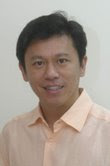Ti hopes to broaden Insap scope
http://www.theedgemalaysia.com/political-news/158236-ti-hopes-to-broaden-insap-scope.html
Tags: 2008 General Election | Barisan Nasional | Datuk Seri Dr Chua Soi Lek | Datuk Seri Liow Tiong Lai | Datuk Seri Ong Tee Keat | Datuk Ti Lian Ker | Federal Constitution | GST | INSAP | MCA | New Economic Policy
KUALA LUMPUR: These are turbulent times for Barisan Nasional’s (BN) oldest partner MCA.
Even before the Chinese-based party has had sufficient time to recuperate from the losses suffered during the 2008 general election, MCA has been hogging the limelight in recent months for all the wrong reasons.
Behind the backdrop of the internal rivalry between three major personalities — Datuk Seri Ong Tee Keat, Datuk Seri Dr Chua Soi Lek and Datuk Seri Liow Tiong Lai — a new player has emerged to help the party weather the storm.
Hailing from Pahang, Datuk Ti Lian Ker has suddenly found himself with the unenviable task of turning MCA’s think-tank, The Institute of Strategic Analysis & Policy Research (Insap), around.
“Insap and MCA have always engaged with traditional Chinese NGOs. But the last election has shown that working with the traditional NGOs alone is not enough for MCA anymore,” said Ti at his new office on the fifth floor of the MCA headquarters in Jalan Ampang.
But over the years, some of the traditional influence these Chinese guilds and NGOs had over the Chinese voters has eroded due to a growing middle class, explained Ti.
“Fewer and fewer of the more educated and affluent middle class today refer to the traditional NGOs and while MCA pampered these NGOs, the truth is it did not help the party during the last election.
“Worse yet, many people felt that MCA had become elitist by pandering to such groups and this alienated many voters,” he added.
To address the issues, Ti, who was appointed by the MCA central committee to head Insap late last year, plans to revamp the think-tank to be more inclusive.
“The time has come for Insap to have a different approach. Insap needs to engage and hold more dialogues with different segments of society.
Insap should also not restrict itself to Chinese issues and should play a bigger role in explaining government policies to the people, (undertake) thorough studies and conduct forums on issues of national interest, he added.
“Policies such as the goods and services tax (GST) and other government initiatives should be explained properly to the voters. Otherwise, many good policies may suffer due to a lack of understanding.”
Insap was incorporated under then president Tun Dr Ling Liong Sik in 1986 and much of its efforts had revolved around the party and traditional Chinese issues such as education and economy.
Besides overseeing media issues, Insap, which only has fewer than half a dozen staff, does periodical surveys for the party.
“Despite the image that MCA is part of the government, the party is largely administered by a small group of staff and volunteers,” said Ti.
“Insap needs to employ more professionals and academics to plan and coordinate more engaging activities.”
Admitting that this was also an MCA problem, the former Teruntum state assemblyman said the party was too entrenched in providing services to the community and had forsaken the need to be more vocal on issues.
“People usually saw MCA as a service centre to deal with bureaucracy, welfare and a facilitator. But the last election has shown us that this is not enough.
“The party needs to be better equipped intellectually and have its own political perspective or philosophy,” said the 47-year-old lawyer by training.
The growing pool of young voters, he added, were more concerned over their rights and freedom as citizens.
But many, he lamented, did not acknowledge the party’s role in shaping major policies of the past such as the New Economic Policy.
“People should realise that MCA is just a component party and is only part of the government. It is not the government per se. The civil service responds to the government, not to the component parties.
“Hence, sometimes there is poor execution of policies. The structure of our Federal Constitution is still race-based. MCA cannot ignore such realities or else it will result in complete anarchy.
“When in Rome, we cannot disregard the Romans,” he said philosophically.
The party, he explained, had awakened to the demands of the electorate and he expected to use Insap to help rebrand the Chinese party.
But the MCA central committee member said restructuring Insap would take time due to the current instability within the party.
“Once the party is more stable, we will try to push the think-tank forward,” he said without giving a timeframe.
Wednesday, February 3, 2010
Subscribe to:
Post Comments (Atom)

No comments:
Post a Comment